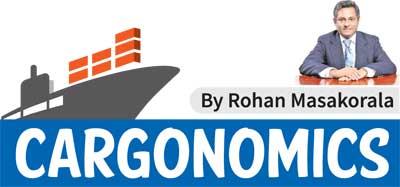25 Mar 2024 - {{hitsCtrl.values.hits}}
- Need a mechanism to support MSME industry
The business of international trade between parties often takes place with credit periods as a competition tool in transactions. In my view, this must be purely based on mutual understanding and as a fair practice for the greater benefit of business development.
transactions. In my view, this must be purely based on mutual understanding and as a fair practice for the greater benefit of business development.
However, in many parts of the world, including the developed world, credit is used by unequal bargaining powers as an anticompetitive, unethical tool, which translates into costs to the manufacturers and service providers of the global supply chains.
As a practitioner in international trade, I have always promoted transparent and ethical business practices. In today’s complex global supply chains, multiple service providers engage in facilitating trade. It is vital that both exporters and importers work with these service providers in a manner that will enhance the overall supply chain efficiency.
Many micro, small and medium (MSME)-sized operators provide freight forwarding, consolidation, warehousing, clearing and other logistics services when cargo is shipped across borders. In my days as a shipping manager, I have had the best of relationships with such service providers, which included major multinationals for shipping services.
The secret to get the best service is to negotiate freight in a way that the service providers are given a comfortable cash flow while paying freight when a shipment is done within a reasonable time frame. In my case, a bill of lading would never be collected on credit and a local transporter would be paid within 10 working days for the services rendered.
Reasonable credit arrangement
The service users should understand that cash flow is critically important to the MSME industries, as they find it difficult to obtain banking facilities at low interest rates while they need to employ many staff to look after the operational work, under challenging conditions and constraints. Therefore, reasonable credit arrangement is strongly recommended.
In my opinion, the credit limit should not exceed 14 days ideally or maximum of 30 days. It is understood that the global shipping and airlines do not extend long periods of credit to the MSME industry. This has been one of the greatest problems that is faced by the local service providers, in an unregulated market such as Sri Lanka.
I believe there is a role for the Credit Information Bureau (CRIB) to facilitate a reasonable arrangement to look after the interest of the MSME industry that provides logistics services, as I had information that some shippers, using their bargaining power, do not pay freight and other service fees for well over one year and as a general practice, most tend to push towards over 90 days.
When such unfair credit is taken from the service providers, there is always a tendency to increase charges, add up anticompetitive methods by the service providers to overall increase of the cost of logistics services to recover long credit periods. For those who unfairly take credit may not realise that paying on time will bring in the best of the services to a company, as more and more service providers would like to have a manageable cash flow rather than unfairly increasing freight and surcharges.
Ground reality
Those who read this article should understand the ground reality in a market where the transaction costs need to be managed through better understanding of the freight market. It is also observed that the shipping line representatives unfairly and probably illegally charge late payment fees from MSMEs and shippers, as the market is not transparently regulated by the authorities.
The importers too are charged exorbitant delivery order fees, unlawful and unethical washing charges and unreasonable demurrage and detention charges, which is simply passed to the consumer or the manufacturer. All this is because in the Sri Lankan environment, the regulatory framework and legal framework are weak and poorly enforced. As a result, both service providers and exporters/importers in the MSME category suffer through unethical and unlawful practices.
As a professional who has been in the trade for well over 30 years, I request the industry to take up these matters in a professional manner with data, where better industry harmony can be built between the service providers and service users and help each other while reducing transaction costs as a country.
(The writer, an economist by profession, with well over 32 years of experience in the shipping, international trade and logistics industry and founder of Shippers Academy International, is former Chairman of the Sri Lanka Shippers’ Council and First Secretary General of the Asian Shipper’s Council)
29 Apr 2024 18 minute ago
29 Apr 2024 32 minute ago
29 Apr 2024 2 hours ago
29 Apr 2024 2 hours ago
29 Apr 2024 2 hours ago